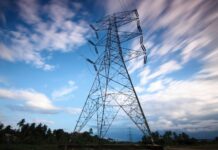In an announcement yesterday evening (21 September), Rishi Sunak pushed back key energy transition dates, including those for electric vehicles (EVs) and heat pumps. Here, we break down what you need to know about the changes.
Transition deadlines for EVs delayed to 2035
Despite the UK’s goal of reaching net zero by 2050, Rishi Sunak has shifted the transition date for phasing out of EVs from 2030 to 2035. This extends the period during which diesel and petrol cars can be produced, bought, and sold. It also puts the UK in line with the targets other European countries.
Carmakers and other businesses may find this setback troubling for investment purposes. Prior to Sunak’s announcement, carmakers have invested hundreds of millions to meeting the 2030 deadline. Some industry leaders have already spoken out.
NewAutoMotive’s chief executive Ben Nelmes said, “Pushing the ban on buying petrol and diesel cars back to 2035 is an abdication of leadership that motorists will pay the price for. It sets us back in the global race to develop green industries – a huge own goal by the UK.”
Heat pump transition date also booted back to 2035
Homeowners no longer must transition to heat pumps by 2026, as Rishi Sunak pushes back a second transition date to 2035. The target for phasing out gas boilers in domestic homes has also been reduced from 100% by 2035 to 80%. This means that homeowners only have to replace their gas boilers with heat pumps when they break. Sunak points to the cost-of-living crisis making heat pumps unattainable for families, and that forcing their hand is not the solution.
To provide financial assistance, the Prime Minister also announced that funding for the Boiler Upgrade Scheme will increase by 50%. Homeowners will now have access to up to £7,500 to help finance the transition to heat pumps.
Multiple taxes and practices are being ‘scrapped’
Circling back to the cost-of-living crisis, Sunak cut taxes on eating meat and setting new taxes to discourage flying. He also highlighted the ‘ridiculousness’ of sorting recycling into seven different bins, and effectively placed that ruling in a bin of its own.
Sunak later posted the ‘unnecessary and heavy handed’ measures to X:
We will never impose unnecessary and heavy-handed measures on you, the British people.
We will still meet our international commitments and hit Net Zero by 2050. pic.twitter.com/XjXQzGVaCN
— Rishi Sunak (@RishiSunak) September 20, 2023
Increase in grid infrastructure
The Prime Minister pledged to work on a transformative plan to improve “unacceptable” grid connection delays. While no dates were set in the announcement, he said that planning would be sped up. An application process for grid connection will also be implemented so that unfinished projects will not have priority access. This will replace the first come, first served practice currently in place.
Relaxing of landlord energy efficiency rules
Mr Sunak also announced that landlords will no longer be forced to improve the energy efficiency of their homes. Rather, they are encouraged to continue making improvements where they can. The UK is currently aiming for all homes to be EPC ‘C’ grade or higher by 2035. Currently, only 4 in 10 homes meet this standard. More detail will be announced on this later.
The Hub will continue to watch this space in the coming months, particularly as the autumn budget approaches, bringing you the latest news in industry updates. To get all your information in one place, subscribe to our monthly LinkedIn newsletter.













